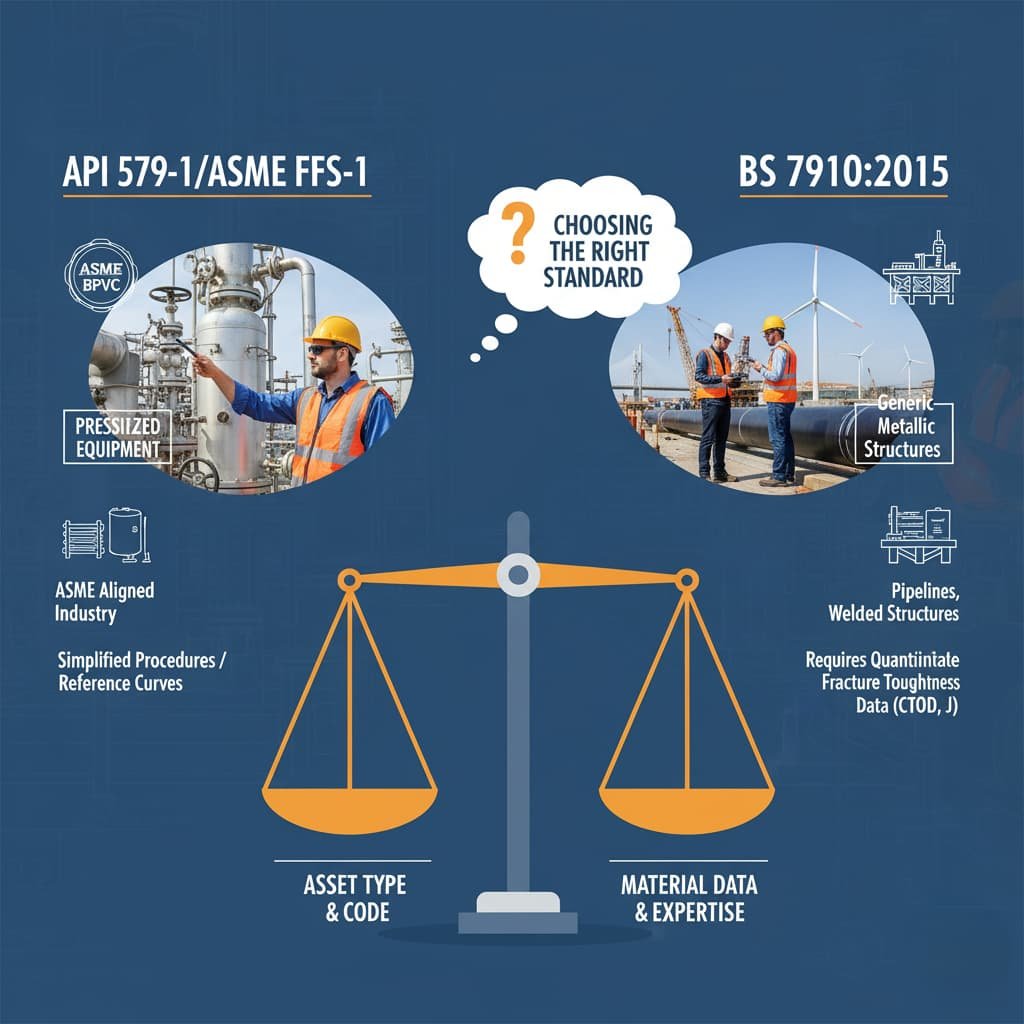API 579 vs BS 7910: When to Use Each Standard in Fitness for Service Assessments

API 579 vs BS 7910 Fitness for Service (FFS) assessments help engineers decide whether a component with defects can continue operating safely. Different standards exist for performing these evaluations, and two of the most widely used are API 579‑1/ASME FFS‑1 and BS 7910. Both documents use fracture mechanics to determine whether flaws are acceptable, but their scopes and data […]
Understanding API 579 and FFS Assessment Levels

Understanding API 579 and FFS Assessment Levels: From Screening to Advanced Analysis Industrial equipment doesn’t last forever. Corrosion, fatigue and accidental damage gradually erode the strength of pipelines, pressure vessels and other critical assets. Fitness for Service (FFS) assessments give engineers a structured way to decide whether a piece of equipment can safely continue operating or whether it […]
Fitness for Service (FFS) in Asset Integrity

The Role of Fitness-for-Service (FFS) in Asset Integrity Fitness-for-Service (FFS) analysis is a structured engineering approach to determine if equipment with flaws or damage can continue to operate safely and reliably. It is a crucial part of asset integrity management, especially in high-risk sectors like oil & gas, power generation, and manufacturing. Over an asset’s […]

